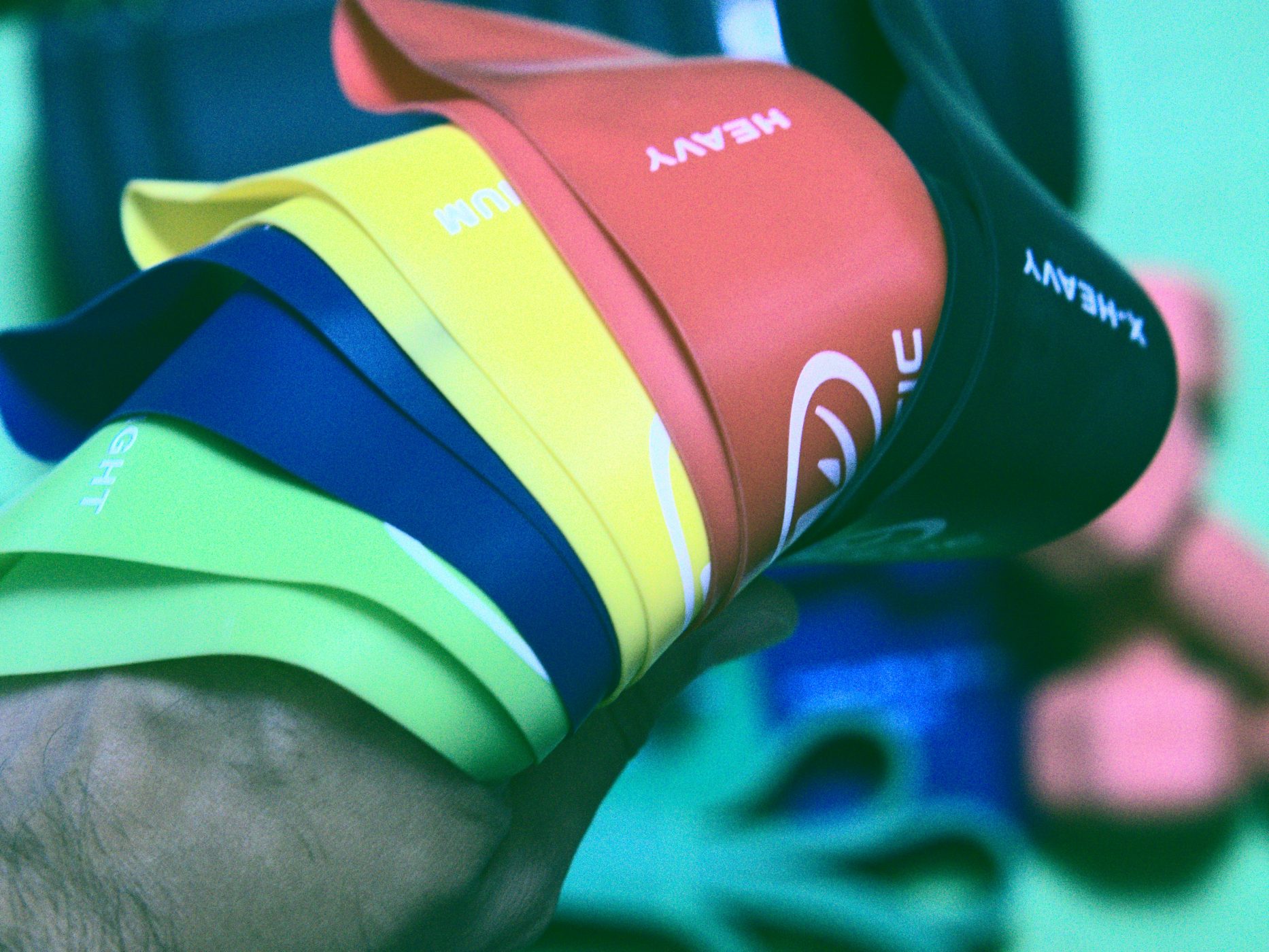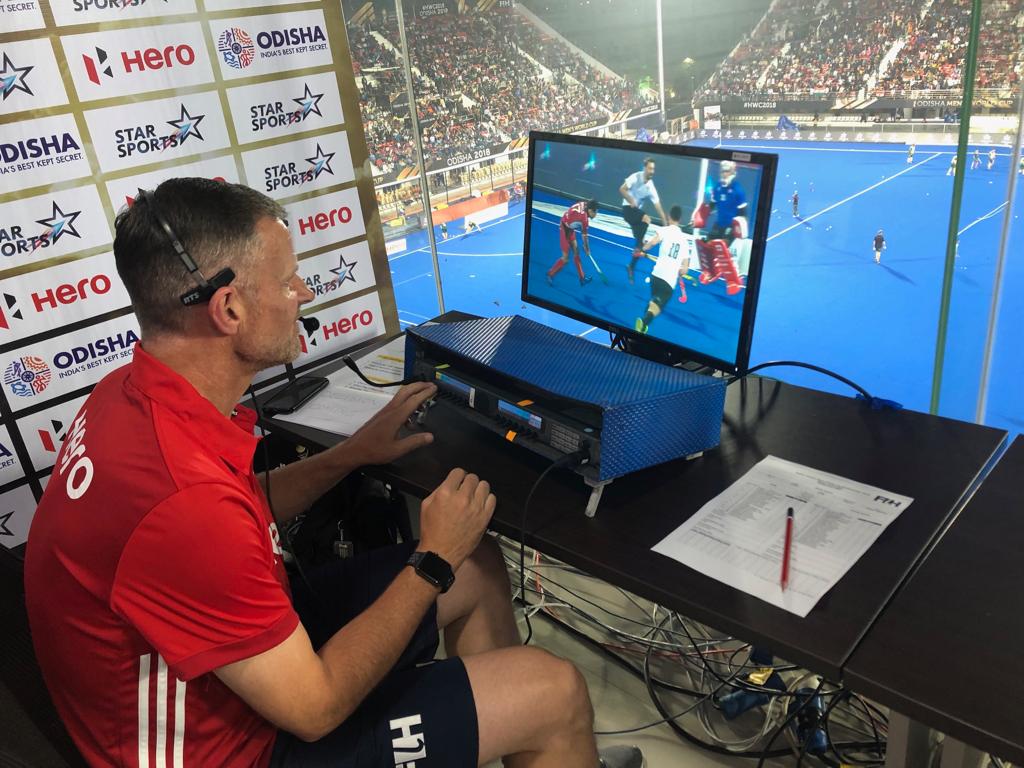Stepping up to the Big Games

The start of the season. Finals. Your first game in a higher grade. A crunch match. Your first tournament or a top of the table clash. These are the games.
The games that freak you out a little (or a lot!) and make you wonder if you can handle it…
The BIG games.
These are the games that test us and help us grow as umpires and as people. We learn about ourselves, we learn about the game, and we learn how to manage things better next time.
We learn what we are truly capable of when put under pressure. And we learn how to handle the pressure.
And trust me, you CAN handle it!
One of the beautiful things about these big games is that they never go away. There will always be a big game to challenge you and help you grow. From the first time you step on to a field with a whistle to umpiring an Olympic final, there will always be games that put you to the test. And I think that’s such a great thing! You should always be striving to be better, to improve, and these are the games that help you do that.
But, by their very nature, these big games are challenging. Sometimes you’ll win and sometimes you’ll lose (metaphorically speaking) – and in both situations you would have learnt something.
And it’s a good lesson, because you rarely forget what you’ve learnt in these games. You either remember with pride how well you handled the situation, or you remember the trauma “learning experience”. I’ll never forget the first time I had to deal with the hot pot of a team that lost their elimination final, or when I completely messed up and sent the wrong player off, or that time when a game reached boiling point and the players had a punch on… 😐 (true story)
What did I learn in these situations? Player management. How to manage my own emotions. How to block out what happened so it didn’t affect the next 10 (or 60!) minutes of my game. How to look calm on the outside when I’m FREAKING OUT on the inside. None of these experiences were pleasant – actually, they flat out sucked – but, I wouldn’t have learnt what I did if not for these experiences.
Of course, I also remember the times I managed players well in a grudge match, absorbed the pressure of my first final, the feeling I had when I blew a great advantage goal in my first international match. These games are a gift, and an inspiration to keep improving.
So, I’m going to give you a few tips on how to bring out that magic that lives inside of you, so that you can really shine in these matches. So that when you step out to umpire a final, or a higher grade, or a game you think you can’t do, that you have confidence in yourself that you can handle it, or that you at least have the tools to help you out when things get a little sticky.
At least, these are the things that have certainly helped me in these games. And whilst I can’t speak from the experience of doing an Olympic final, I imagine that much of what I’ve learnt along my path is stashed in the toolboxes of those superstars lucky enough to have had that honour too 😉
Stepping up to a BIG GAME
Embed from Getty Images
Before the game: Set yourself up for success
Self-Belief
First up: Y’ALL GOTTA BELIEVE IN YO’ SELF.
You’ve been put on that game, or sent to that tournament, for a reason. Someone obviously believes you can do it, otherwise you wouldn’t be there! So, take heart in that, take a deep breath, and back yourself. This is your chance to show off your skills, and prove to yourself that you can do it! And if you’ve got a little voice in your head telling you that you can’t, prove it wrong! This is where mental toughness, resilience and self-talk comes in. You’ve got to own it and be confident.
“Make sure your worst enemy doesn’t live between your own two ears.” — Laird Hamilton
Pre-game Prep
Give yourself the best shot at success by making sure you prepare properly for your game.
First up – make sure you’re on time. It might seem obvious, but leaving a little earlier, or getting to the game a little earlier, than you normally would is a good idea. This leave you time to adjust if something holds you up on the way, and gives you time to settle in once you’re there.
There is NOTHING worse than running late and feeling stressed and rushed when you step out onto the field (trust me, I’ve been there!). This big game deserves more than that from you. It deserves your best, and you can’t do that unless you’re there on time.
Give yourself enough time at the pitch to get changed or watch the game beforehand or get some quite time, if that’s what helps you best. And DEFINITELY leave enough time to properly warm up and get your radios set up. This takes longer than you think and you don’t want to compromise your warm up or mental preparation because you didn’t leave enough time. That, friends, is a rookie error.
Following on from giving you best, make sure you have a pre-game talk with your co-umpire, and the technical bench, to make sure you’re all on the same page. That you know how you’re going to manage the game, help each other out and be the best team you can be for the game. Not sure what to talk about? Umpiring with your colleague for the first time? Check out the Pre-match chat post here.
During the game
Stay calm
It’s totally normal to be nervous! And to a certain extent, nerves are a good thing. They mean that you care! But when you step out onto that field you have to be confident in yourself. Players have a sixth sense when it comes to these things and they will take full advantage of it if they sense even a whiff of doubt! Back yourself.
When things get a little more intense, stay calm. That’s easier said than done, I know, but it will help you to stay in control of the game and make the best decisions you can. And even if you don’t feel calm on the inside, project a sense of calm on the outside. Control your emotions.
Recognise changes in intensity
The game will naturally go through periods of intensity and lulls, every game does. But the intense patches tend to come more often and last longer in big games. You need to be able to recognise when the tempo of the game shifts and adapt to it, lift with it.
Ride the waves of the game so that you don’t find yourself 3 cards deep and think to yourself “how did we get here?”. It’s easy to lose control of a game by not recognising the changes and not lifting with the game when it needs it.
So, how do you recognise the changes? Put yourself in the shoes of the players. What are they trying to achieve at that particular point of the game?
You will generally notice the talk on the pitch increases when the intensity starts to pick up. The ball moves faster, there is more passing and driving toward goals. The play becomes more physical and players might question decisions more. They get more frustrated when things don’t go their way or when they make mistakes.
Increasing intensity generally comes when a team is down, or the game is drawn, and teams are looking for an outcome or result. This is particularly the case in finals obviously, where teams are eliminated if they lose!
Keep a close eye out about a third of the way into the second half and towards the end of the game (depending on the score line), or if you’re playing quarters, on quarter 3 and the last 10 minutes of quarter 4. Of course, you need to monitor the whole game for these periods of intensity, but generally if s**t’s going to go down, it goes down around these times.
Lifting with the game
When the intensity does lift, you need to lift with the game. But what the hell does that mean?
Lifting with the game is about mental switching on EVEN MORE. Being super focused – vigilant, if you like. You need to be carefully monitoring what the players are doing, what their intent is. You need to watch for breakdown tackles and penalise them for what they are – the defending team breaking the build up of play for the attacking team.
If you just blow a “nothing” kind of free hit in these periods of intensity and don’t manage the situation, then you’re not lifting with the game. You’re not being the umpire the game needs at the time. The attacking players will get frustrated and probably start to have a dig. And most likely a tackle like this will happen again, from either team, because you let it go. If you’ve missed the cue to step it up, then you’re in danger of losing control of the game.
Lifting with the game is also about absorbing the pressure. It’s about recognising that things are moving faster, that your decisions are under more scrutiny from the teams, and still being able to calmly, but quickly, process situations and make the right decision. If you let the intensity of the match get to you, it will affect your decision making. You’ve got to rise above it.
Lifting with the game also means not letting the players get away with as much as you might normally let them. It’s about setting the boundaries and sticking to them. Talking back, hitting the ball away, physical play, deliberate intent – during periods of intensity you MUST deal with these things. And that doesn’t necessarily mean giving a card, there are other things in your management toolbox too (like loud whistles, talking to players, the good old death stare). It might also mean shortening up the advantage. Quicker free whistles in order to avoid player frustration and those “agricultural tackles” creeping in.
If you make a mistake…
We’ve all been there. It’s the worst.
Small mistakes or game changing ones, they can still have the same affect on us, although it’s usually the big one that put us in a bit of a spin. So, how do you handle it?
During the game, BLOCK. IT. OUT. Seriously, you need to try and forget it ever happened, so that it doesn’t affect your next decisions. There is no use thinking about it on the field – you’re too busy! And like I said before, these games (in fact, every game) deserve your full attention. If you are thinking about the mistake you just made, you’re not present in the match, and your performance and the game will suffer (even more) for it!
Use a focus word in order to block out those thoughts and focus on just the here and now. It can be anything you want – breathe, focus, hippopotamus. It doesn’t matter. As long as it makes you focus on what’s in front of you.
Practicing mindfulness outside of your games can also help with training your brain to only focus on the here-and-now in situations like this. There are heaps of helpful tools around for mindfulness but I think the Smiling Mind app is one of the best. Look it up on the App store or their website.
After the game
The first thing you should do when you step off the pitch is take a deep breath and give your colleague a high-5! You did it! You got the end of the game, and I bet you learnt a few things along the way.
Self-reflection
Once you’ve had the chance to calm down a few notches (even if you’ve had a great game, the adrenaline can be pumping!), take a moment to reflect on the game. This might be shortly after your game with an umpire coach or your colleague, but it might also be a day or so later by yourself.
This is where you can finally go back and process what happened during the game and learn.
Firstly, think about what went well! You should be proud of the things you did to help manage the game, and should be storing them away in the memory bank for next time! Or, so that when things didn’t go so well and you’re doubting yourself, you can come back to the memory of this time and know that you CAN do it.
If you have made a mistake during the game, or you could have handled a situation in a better way, then:
First, acknowledge that you’re human. We make mistakes.
Secondly, try to discern why you made the mistake. Interpretation? Positioning? Not thinking fast enough? Fatigue? This is the first step in fixing the problem so that it doesn’t happen again. Speaking with your umpire coach/manager, or your colleague or even just a trusted person who was watching the game can be helpful in aiding your self-assessment.
Think about how you would change what happened if you could – this is the second step in fixing the mistake. Now, imagine it in your mind. This is call Imagery and it helps cement it into your brain so that it can better recall what you should do when it happens next time (there’s ALWAYS a next time!).
Finally, MOVE ON. I’m a big culprit for stewing over things. My brain replays the situation/mistake over and over and over again, like it can’t believe I made a mistake. Or maybe to make sure it’s hammered in….I’m not sure.
Thanks brain. Super helpful. You’re a gem.

Try to mindfully monitor your thoughts – actively acknowledge when your brain is thinking about it again and direct your thoughts to something else. Now, I’m not telling you to suppress all thought on the situation – you need to process what happened. However, once you’ve gone through that process then it’s time to move on. This is another time when practising mindfulness comes in handy. Go on, get on board – it’s all the rage right now.
Essentially, it comes down to acknowledging that humans make mistakes. It happens. But also, the other people involved in making the situation worst also made mistakes. Maybe they don’t understand the rule properly and yelled at you – that is their mistake. Maybe they know you got this decision wrong but made a mistake to handle the situation poorly, because they are human and passionate.
Hopefully that makes you feel better 😉
So, I hope this post has given you some tips to take into your next big game, be it a final, grudge match, top of the table clash or your first game in a higher grade! Know that you can do it. And every time you step out onto the field you will learn something that will make you a better umpire. After all, isn’t that all any of us are trying to be?
Make sure you never miss cool information like this by signing up to the newsletter. Don’t worry, I value your inbox just as much as my own and I promise never to spam you!
For behind the scenes action and extra tips and tricks, follow Five Metres Please on Facebook, Instagram and Pinterest. And if you liked this post, why not share it using the buttons below? There’s more great development tips over on the Development page! Check it out!




You must be logged in to post a comment.